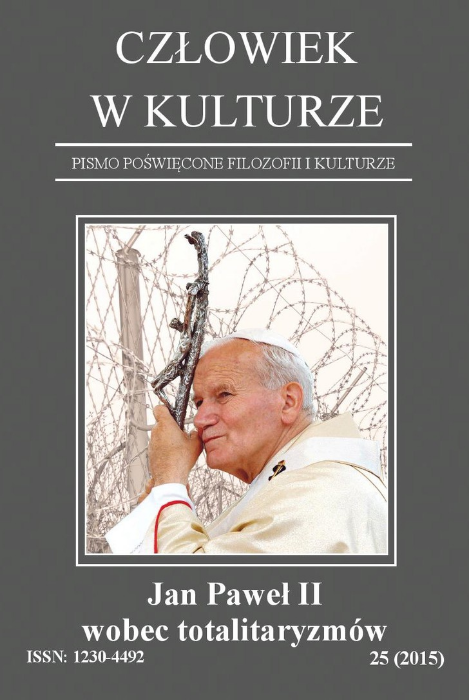Poezja jako wyraz suwerenności osoby ludzkiej
Poetry as an expression of sovereignty of human person
Author(s): Jan SochońSubject(s): Christian Theology and Religion, Philosophy, Special Branches of Philosophy, Theology and Religion, Philosophy of Religion
Published by: Fundacja »Lubelska Szkoła Filozofii Chrześcijańskiej«
Keywords: Karol Wojtyła; John Paul II; poetry; art; romanticism; human person; sovereignty; faith
Summary/Abstract: The author is deeply convinced of the impossibility of imagining the Church deprived of a certain poetic style of life. It was also the belief of the Pope John Paul II, the one nostalgically awaited by the Romantic generation who dreamed about “the throne opened for the Slavic pope” according to the prophetic intuition of Juliusz Słowacki in his well known poem The Slavic Pope, published in late 1848. When Karol Wojtyła was elected the Vicar of Christ, the Poles immediately recalled this visionary text of their celebrated poet – a kind of aftermath of the political and religious background at the time. What is more, the St. Paul’s successor turned out to be a man of artistic vision which he often took advantage of in his pastoral work. For this reason a question arises in the further part of this article as to the role poetry can play in people’s lives: can it have a real influence on their decisions or does it remain a mere expression of their personal sovereignty? To give an answer to this question it is necessary to ponder over the nature of creativity as such, especially the lyrical creative output. It seems that the ability to choose poetic forms from the endless language resources combined with a certain state of mind – kind of poetic frenzy, inspiration, mysterious concentration – can produce poetry that constantly suggests the content hard to express. While our daily language is usually informative and meaningful, the language of poetry goes much further. A poet, while building a certain semantic structure makes use of it to create a phenomenon. It should be regarded as an experienced abundance of meanings held together by structural order. This is the reason why faith open to poetic word and, more generally, to art constituted for Karol Wojtyła-John Paul II an effective tool of strengthening the relationship with God and other people. Aesthetic beauty paired with moral beauty, noticeable subtlety, sensitivity to the voice of consciousness and other people’s internal and external sovereignty made him able to draw individual people and entire communities to Christ. To quote the words of Osip Mandelstam, the tragic poet sentenced to death by the soviet communists, whose body was placed in a common grave – the words he threw back in face of his persecutors: “Don’t take from me the movements of my lips.”
Journal: Człowiek w Kulturze
- Issue Year: 2015
- Issue No: 25
- Page Range: 137-149
- Page Count: 13
- Language: Polish

